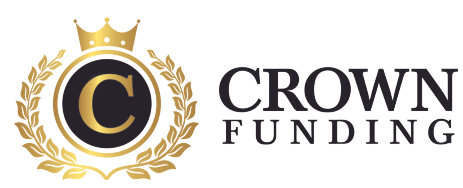
Comparing Mortgage Brokers vs. Banks in Canada: Which is Right for You?
Introduction:
When it comes to obtaining a mortgage in Canada, homebuyers have two main options: working with a mortgage broker or going directly to a bank. Both options have their advantages and considerations, and choosing the right path can greatly impact your mortgage experience. In this blog post, we will delve into the key differences between mortgage brokers vs. banks in Canada, helping you make an informed decision about which option is best suited for your needs.
I. Understanding Mortgage Brokers and Banks:
Before diving into the comparison, it is crucial to understand the basic roles and functions of mortgage brokers and banks in Canada.
Mortgage Brokers in Canada: Mortgage brokers are independent professionals who act as intermediaries between borrowers and lenders. They work with multiple lenders, including banks, credit unions, and other financial institutions, to find the best mortgage product for their clients. Brokers assess a borrower’s financial situation, shop around for suitable mortgage options, and facilitate the application process on behalf of the borrower.
Banks in Canada: Banks are financial institutions that offer a range of financial services, including mortgage lending. As direct lenders, banks provide mortgage products and handle the entire loan process, from application to approval and funding. Banks have their own underwriting guidelines and loan officers who evaluate borrower eligibility and make lending decisions.
II. Mortgage Brokers in Canada:
Mortgage brokers have become increasingly popular in Canada due to the many advantages they offer to homebuyers. Here are some key benefits of working with a mortgage broker:
- Access to Multiple Lenders: Mortgage brokers have access to a wide range of lenders, including big banks, credit unions, and alternative lenders. This allows them to explore various mortgage products and find the best fit for each borrower’s unique situation.
- Expert Guidance and Market Knowledge: Brokers are well-versed in the mortgage market and stay up to date with the latest trends, rates, and regulations. They leverage their expertise to guide borrowers through the mortgage process, ensuring they make informed decisions.
- Personalized Service: Mortgage brokers provide personalized service, taking the time to understand each client’s financial goals, circumstances, and preferences. They offer customized solutions and negotiate on behalf of the borrower to secure competitive rates and favorable terms.
III. Banks in Canada
Banks are the traditional and most familiar option for mortgage seekers. Here are a few considerations when dealing directly with a bank:
- Convenience and Accessibility: Banks have a widespread presence in Canada, making them easily accessible for borrowers. Customers can visit branches, meet loan officers in person, and have all their banking needs met in one place.
- Existing Customer Benefits: If you have an existing relationship with a bank, they may offer preferential rates or perks based on your history and loyalty. This can sometimes result in more favorable mortgage terms.
- Streamlined Process: When working with a bank, the entire mortgage process takes place within the institution, enabling a more streamlined and cohesive experience. All your banking needs, including mortgages, can be managed under one roof.
IV. Comparing Mortgage Brokers vs. Banks:
Now, let’s compare the key aspects of mortgage brokers and banks to help you determine the right option for your mortgage needs.
A. Range of Mortgage Products: Mortgage brokers have access to a broader range of mortgage products from various lenders. They can offer borrowers greater flexibility and access to specialized loan options that may not be available through banks.
B. Interest Rates: Both mortgage brokers and banks can offer competitive interest rates. Brokers often have access to discounted rates and promotions through their lender networks, while banks may offer incentives to retain customers. It is essential to compare rates from both sources to secure the best possible deal.
C. Personalized Service: Mortgage brokers pride themselves on delivering personalized service. They take the time to understand your financial goals, lifestyle, and preferences to find the most suitable mortgage solution. Banks also offer customer service, but the experience may be more standardized due to their larger customer base.
D. Accessibility and Convenience: Banks have an advantage when it comes to accessibility and convenience. With numerous branches and online banking services, banks offer a seamless experience for customers who value in-person support and all their financial services in one place. Mortgage brokers, on the other hand, may provide flexible hours and remote support, catering to those with busy schedules or seeking convenience.
E. Qualification Requirements: Banks and mortgage brokers both have specific qualification requirements. Banks typically follow their underwriting guidelines, which can be strict and inflexible. Mortgage brokers, however, have relationships with multiple lenders, allowing them to find mortgage products that align with various borrower profiles, including self-employed individuals or those with less-than-perfect credit.
F. Fees and Costs: Mortgage brokers are generally compensated by the lender through a finder’s fee or commission. In contrast, banks earn profits directly from the interest charged on their mortgage products. It is important to discuss fees and costs transparently with both brokers and banks to ensure you have a clear understanding of the charges associated with your mortgage.
G. Relationships with Lenders: Mortgage brokers often develop relationships with lenders over time, which can result in a smoother mortgage process. Brokers understand lenders’ requirements, preferences, and processes, making it easier to navigate the application and approval stages effectively.
V. Choosing Between a Mortgage Brokers vs. Banks
When making a decision between a mortgage brokers vs. banks, consider the following steps:
A. Consider Your Needs: Assess your financial goals, preferences, and circumstances. Determine the level of support and service you require, the loan options you are interested in, and your desired timeline for obtaining a mortgage.
B. Research and Compare: Research reputable mortgage brokers and banks in Canada. Compare their services, product offerings, interest rates, fees, and customer reviews. Look for a provider that aligns with your needs and has a track record of customer satisfaction.
C. Seek Recommendations and Read Reviews: Ask friends, family, and colleagues for recommendations based on their own experiences. Additionally, read online reviews and testimonials to gain insights into other customers’ experiences with both mortgage brokers and banks.
D. Evaluate Service and Communication: Contact a few mortgage brokers and banks to assess their service quality and communication. Pay attention to their responsiveness, willingness to answer your questions, and their ability to provide clear and concise explanations of the mortgage process.
VI. Crown Funding:
Your Trusted Mortgage Broker in Canada: When it comes to mortgage brokers in Canada, Crown Funding stands out as a trusted and customer-focused option. Here’s why you should consider Crown Funding for your mortgage needs:
A. About Crown Funding: Crown Funding is a leading mortgage brokerage firm in Canada. With a team of experienced mortgage professionals, they offer personalized service, industry expertise, and a wide range of mortgage products to meet the unique needs of each client.
B. Why Choose Crown Funding: Crown Funding has built strong relationships with numerous lenders, including major banks and alternative lenders, ensuring access to competitive rates and flexible mortgage options. They provide unbiased advice, helping you navigate the complex mortgage landscape and making informed decisions.
C. Crown Funding’s Commitment to Customers: Crown Funding prioritizes customer satisfaction and aims to simplify the mortgage process. They offer convenient online tools, flexible meeting options, and a dedicated team of professionals who guide you every step of the way. Crown Funding’s transparent approach ensures you understand the terms, fees, and costs associated with your mortgage.
VII. Conclusion:
Choosing between a mortgage brokers vs. banks in Canada is a crucial decision when embarking on your homeownership journey. By comparing the range of mortgage products, interest rates, personalized service, accessibility, qualification requirements, fees, and relationships with lenders, you can make an informed choice that aligns with your needs and preferences.While banks offer convenience and existing customer benefits, mortgage brokers like Crown Funding provide access to a broader range of mortgage options, personalized service, expert guidance, and tailored solutions.
Whether you choose to work with a mortgage broker or a bank, it is essential to research and compare providers, seek recommendations, and evaluate their service quality and communication. With the right choice, you can navigate the mortgage process confidently and secure a mortgage that suits your financial goals. Consider Crown Funding as your trusted mortgage broker in Canada, offering expertise, personalized service, and a commitment to customer satisfaction. Visit their website at [https://crownfunding.ca/] to learn more about their services and start your mortgage journey on the right foot.
